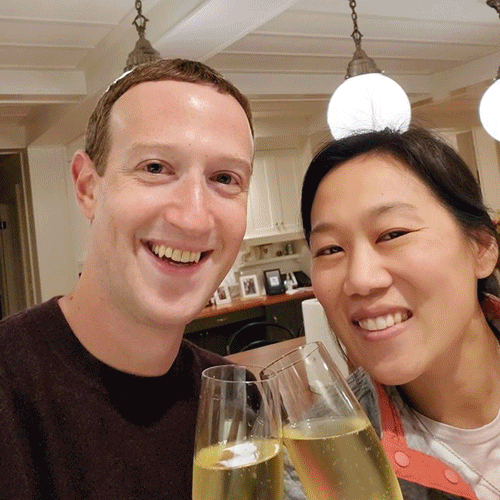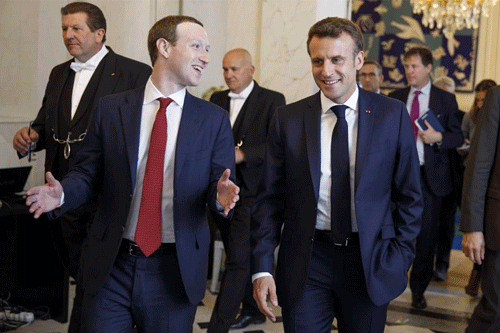Each picture we shoot and share to Instagram contains secrets. Each represents a series of choices about what we value and find interesting, how we want to represent ourselves and our lives to the wider world. I believe that considering an individual’s Instagram account as a whole, examining all of the images they have posted and looking for photographic commonalities among them—such as subject or composition—can reveal their subconscious impulses, who they are, or who they want to be.
I first used this technique to examine pictures Melania Trump posted to Twitter before she became First Lady of the United States, and later on with world leaders like German Chancellor Angela Merkel and French President Emmanuel Macron. Here I analyze Facebook CEO Mark Zuckerberg’s Instagram account, @zuck.
Although we think of Zuckerberg mainly as a CEO, on Facebook-owned Instagram he presents himself as a father and husband first and foremost. He downplays his role as one of the most powerful men in the world.
Zuckerberg repeatedly posts similarly-composed selfies of himself with his wife, Priscilla Chan. In these images they are both giving toothy smiles, their heads tilted toward one another. Placing one’s happy relationship front and center on Instagram is common enough. Yet on Zuckerberg’s Instagram account, images with his wife stand in stark contrast to his solo portraits and family pictures.

Zuckerberg posts few selfies. When he does post pictures of himself alone, he is often far from the camera, small in the frame. These compositions place him within a broader context: visiting the famous Harvard University dorm room where he invented Facebook, kayaking, or paddle boarding. This is a man of action, he seems to be saying, or at least a man of activity. What he’s doing in these images is given more narrative weight than how he feels about what he’s doing; if he wanted to communicate how he felt, as he does in the images with his wife, we’d be able to see his teeth or his expression.

In the pictures Zuckerberg posts of his children, their faces are almost always partially obscured or half-turned away from the camera. I don’t believe this is a conscious choice. If Zuckerberg wanted to hide his children from the public, surely he would more overtly hide their faces, or leave them off Instagram all together. What this represents instead, I believe, is a consistent yet subtle inclination toward their obfuscation. For Mark Zuckerberg, Instagram seems to be a place to humanize himself, to soften his reputation as a man out for world domination. It is impossible to create a visual narrative of oneself as a father without exposing one’s children to the camera, but his pictures suggest a conflict about doing so.

Zuckerberg shares relatively few images portraying himself in action as the CEO of Facebook. In three different examples: he toasts an employee on his ten-year Facebook anniversary, smiles with Facebook COO Sheryl Sandberg, and laughs with Emmanuel Macron. Zuckerberg is a happy collaborator, a listener rather than a leader in these images. Nothing here suggests authoritarianism.

As a CEO whose bottom line is dependent upon his users sharing content, Zuckerberg is obliged to use Instagram. To refrain from doing so would look questionable and hypocritical; he must “eat his own dog food,” as the popular Silicon Valley saying goes. The selective version of himself that he chooses to share on Instagram—the grinning husband, tentative father, best buddy of a boss—reflects an internal conflict over the hard reality of social media exposure. The images on @zuck represent a shiny version of his life, and there’s something empty to it, something anaesthetic, despite the smiles.
Zuckerberg has long insisted that Facebook “is about helping people share information and share themselves.” There has always been something empty about the PR-polish of these statements, too. Having examined the photographic patterns of Zuckerberg’s Instagram, I have to wonder if in both instances, on his personal Instagram and in regards to Facebook as a business, sharing is a form of hiding, a type of marketing, designed to disguise his real motivations.